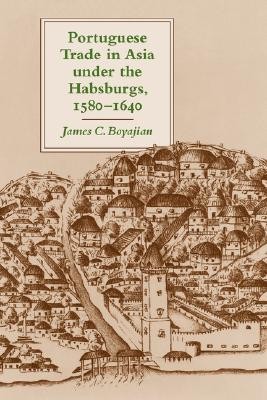
- We will send in 10–14 business days.
- Author: Jamesc Boyajian
- Publisher: Johns Hopkins University Press
- ISBN-10: 0801887542
- ISBN-13: 9780801887543
- Format: 15.2 x 22.9 x 2.2 cm, softcover
- Language: English
- SAVE -10% with code: EXTRA
Portuguese Trade in Asia Under the Habsburgs, 1580-1640 (e-book) (used book) | bookbook.eu
Reviews
Description
This fascinating history reassesses the consequences of Portugal's flourishing private trade with Asia, including increased tensions between the growing urban merchant class and the still-dominant landed aristocracy. James C. Boyajian shows how Portuguese-Asian commerce formed part of a global trading network that linked not only Europe and Asia but also-for the first time-Asia, West Africa, Brazil, and Spanish America. He also argues that, contrary to previous scholarly opinion, nearly half of the Portuguese-Asian trade was controlled by New Christians-descendants of Iberian Jews forcibly converted to Christianity in the 1490s.
EXTRA 10 % discount with code: EXTRA
The promotion ends in 16d.18:04:50
The discount code is valid when purchasing from 10 €. Discounts do not stack.
- Author: Jamesc Boyajian
- Publisher: Johns Hopkins University Press
- ISBN-10: 0801887542
- ISBN-13: 9780801887543
- Format: 15.2 x 22.9 x 2.2 cm, softcover
- Language: English English
This fascinating history reassesses the consequences of Portugal's flourishing private trade with Asia, including increased tensions between the growing urban merchant class and the still-dominant landed aristocracy. James C. Boyajian shows how Portuguese-Asian commerce formed part of a global trading network that linked not only Europe and Asia but also-for the first time-Asia, West Africa, Brazil, and Spanish America. He also argues that, contrary to previous scholarly opinion, nearly half of the Portuguese-Asian trade was controlled by New Christians-descendants of Iberian Jews forcibly converted to Christianity in the 1490s.


Reviews